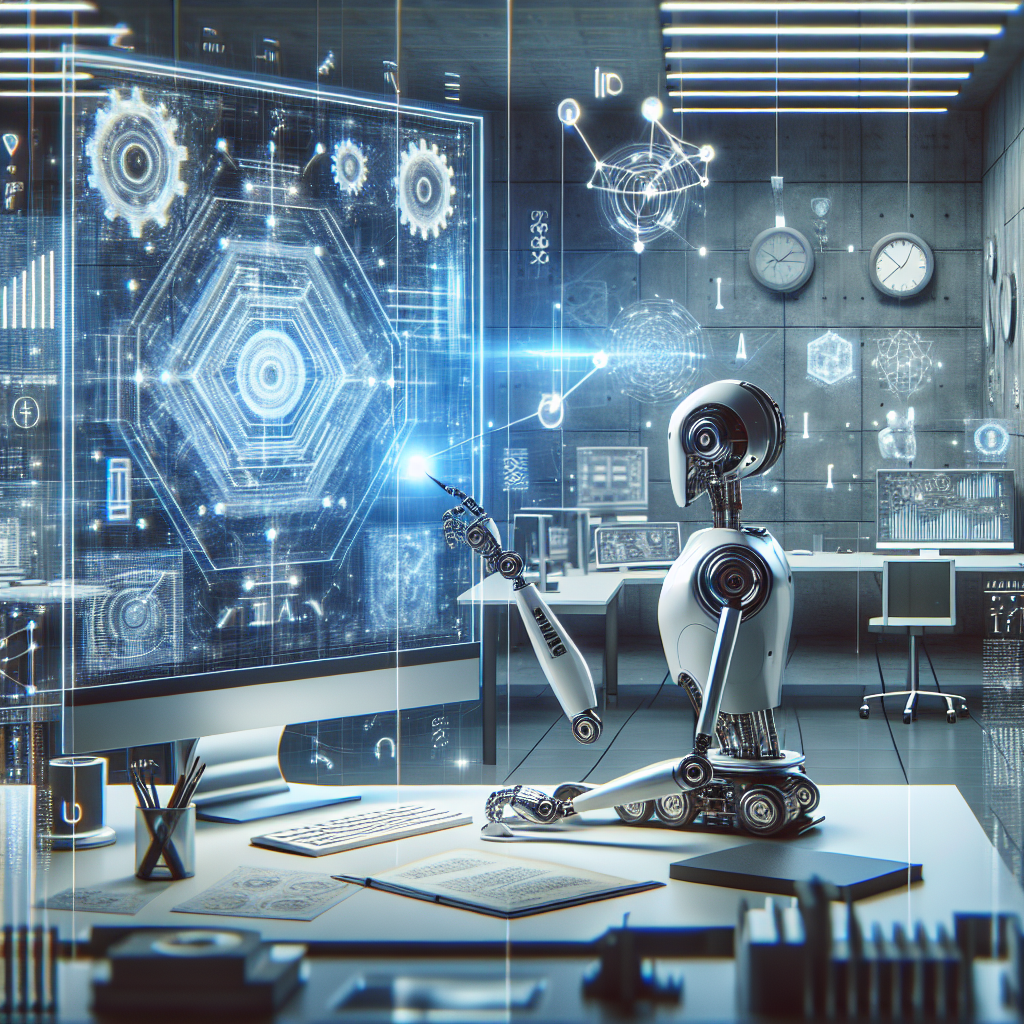AI and Machine Learning: The Future of Automation
Artificial Intelligence (AI) and Machine Learning have been buzzwords in recent years, with many industries looking to leverage these technologies to automate processes and improve efficiency. From self-driving cars to facial recognition software, AI and Machine Learning have the potential to revolutionize the way we live and work. In this article, we will explore the future of automation through AI and Machine Learning and discuss the impact these technologies will have on various industries.
What is Artificial Intelligence?
Artificial Intelligence is the simulation of human intelligence processes by machines, especially computer systems. These processes include learning (the acquisition of information and rules for using the information), reasoning (using rules to reach approximate or definite conclusions), and self-correction. AI technologies include machine learning, natural language processing, computer vision, and robotics.
What is Machine Learning?
Machine Learning is a subset of AI that allows machines to learn from data without being explicitly programmed. With the help of algorithms, a machine can recognize patterns in data and make decisions based on those patterns. Machine Learning is used in various applications, such as recommendation systems, fraud detection, and predictive maintenance.
The Future of Automation with AI and Machine Learning
The future of automation with AI and Machine Learning is bright, with many industries already adopting these technologies to streamline processes and improve productivity. Here are some ways AI and Machine Learning are shaping the future of automation:
1. Predictive Maintenance: AI and Machine Learning can be used to predict when a machine is likely to fail, allowing companies to perform maintenance before a breakdown occurs. This reduces downtime and saves costs associated with repairs.
2. Autonomous Vehicles: Self-driving cars are becoming a reality, thanks to AI and Machine Learning. These vehicles use sensors and cameras to navigate roads and make decisions in real-time. Autonomous vehicles have the potential to reduce accidents and improve traffic flow.
3. Personalized Recommendations: Recommendation systems use Machine Learning algorithms to analyze user data and provide personalized recommendations. This technology is used by companies like Amazon and Netflix to suggest products and movies based on user preferences.
4. Fraud Detection: AI and Machine Learning can detect fraudulent activities by analyzing patterns in data. Banks and financial institutions use these technologies to identify suspicious transactions and prevent fraud.
5. Healthcare: AI and Machine Learning are being used in healthcare to diagnose diseases, personalize treatment plans, and improve patient outcomes. These technologies can analyze medical images, genetic data, and patient records to make accurate predictions.
6. Natural Language Processing: AI-powered chatbots and virtual assistants use natural language processing to understand and respond to user queries. These technologies are used in customer service, healthcare, and education to provide personalized assistance.
7. Environmental Monitoring: AI and Machine Learning can analyze satellite images and sensor data to monitor environmental changes, such as deforestation and climate change. These technologies help scientists and policymakers make informed decisions to protect the environment.
FAQs:
1. What is the difference between AI and Machine Learning?
AI is the broader concept of machines being able to carry out tasks in a way that we would consider “smart.” Machine Learning is a subset of AI that allows machines to learn from data without being explicitly programmed.
2. How can AI and Machine Learning benefit businesses?
AI and Machine Learning can benefit businesses by automating repetitive tasks, improving decision-making, reducing costs, and increasing productivity. These technologies can also help businesses gain insights from data and provide personalized experiences to customers.
3. Are there any ethical concerns related to AI and Machine Learning?
There are ethical concerns related to AI and Machine Learning, such as bias in algorithms, privacy issues, and job displacement. It is important for companies to address these concerns and implement ethical guidelines to ensure the responsible use of these technologies.
4. What are some challenges in implementing AI and Machine Learning?
Some challenges in implementing AI and Machine Learning include data quality issues, lack of skilled talent, regulatory compliance, and security risks. Companies need to invest in data infrastructure, training programs, and cybersecurity measures to overcome these challenges.
In conclusion, AI and Machine Learning have the potential to transform the future of automation, with many industries already reaping the benefits of these technologies. From predictive maintenance to personalized recommendations, AI and Machine Learning are driving innovation and improving efficiency. As companies continue to embrace automation, it is essential to address ethical concerns and challenges to ensure the responsible use of AI and Machine Learning. The future of automation is bright, and AI and Machine Learning will play a crucial role in shaping it.

